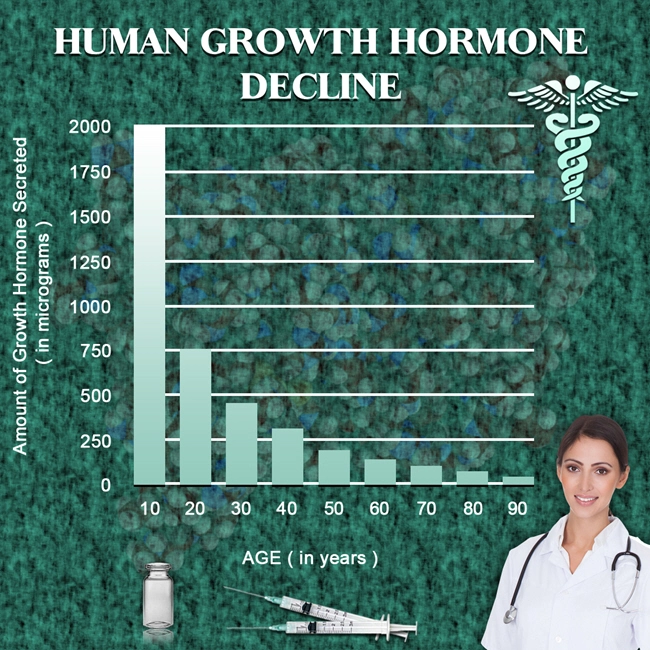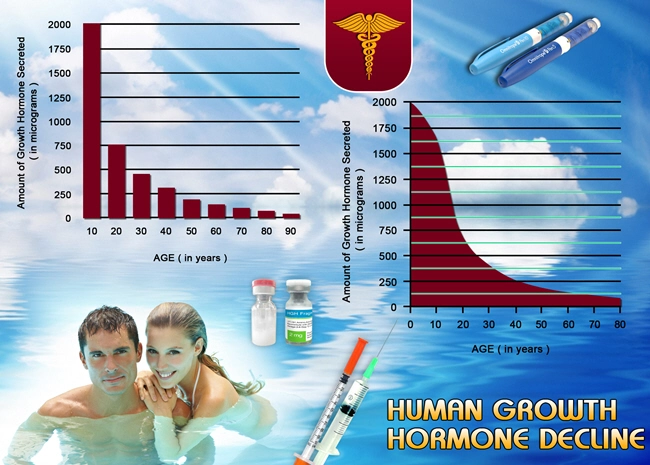
Introduction to Prostate Cancer
Prostate cancer is a significant health concern for American males, with its incidence on the rise. As the most common non-skin cancer in men, it's crucial to delve into the factors contributing to its increase and the interventions available to manage this condition effectively.
Epidemiology and Trends
The prevalence of prostate cancer in the United States has been steadily increasing. According to the American Cancer Society, one in eight men will be diagnosed with prostate cancer during their lifetime. This trend is attributed to several factors, including an aging population, improved screening methods, and possibly environmental or lifestyle influences. The rise in cases underscores the need for heightened awareness and proactive health management among American men.
Risk Factors and Prevention
Understanding the risk factors associated with prostate cancer is essential for prevention and early detection. Age is the most significant risk factor, with the likelihood of developing prostate cancer increasing dramatically after the age of 50. Family history, genetics, and race also play crucial roles, with African American men having a higher risk than other groups. Lifestyle factors such as diet, obesity, and physical activity levels are also under scrutiny for their potential impact on prostate health.
Preventive measures include maintaining a healthy weight, engaging in regular physical activity, and consuming a diet rich in fruits and vegetables. Additionally, discussing the benefits and risks of prostate cancer screening with a healthcare provider can help men make informed decisions about their health.
Screening and Early Detection
Early detection of prostate cancer significantly improves the chances of successful treatment. The primary screening tools are the prostate-specific antigen (PSA) blood test and digital rectal exam (DRE). While these tests are not perfect, they can help identify prostate cancer at an early, more treatable stage. The U.S. Preventive Services Task Force recommends that men aged 55 to 69 discuss the potential benefits and harms of PSA-based screening with their healthcare provider.
Treatment Options
The treatment of prostate cancer depends on several factors, including the stage of the cancer, the patient's age, and overall health. Options range from active surveillance for slow-growing tumors to more aggressive treatments such as surgery, radiation therapy, and hormone therapy for more advanced cases. Newer treatments, including targeted therapies and immunotherapies, are also showing promise in managing advanced prostate cancer.
The Role of Urology in Prostate Cancer Management
Urologists play a pivotal role in the management of prostate cancer. From performing biopsies to conducting surgeries and overseeing follow-up care, urologists are at the forefront of treating this disease. Advances in urological techniques, such as robotic-assisted surgery, have improved outcomes and reduced recovery times for patients.
Psychological and Social Impact
A diagnosis of prostate cancer can have significant psychological and social impacts on men and their families. Issues such as sexual dysfunction, urinary incontinence, and the fear of cancer recurrence can affect quality of life. Support groups, counseling, and open communication with healthcare providers can help men navigate these challenges.
Conclusion: A Call to Action
The rise of prostate cancer among American males is a call to action for increased awareness, prevention, and early intervention. By understanding the risk factors, engaging in preventive health practices, and working closely with healthcare providers, men can take proactive steps to manage their prostate health. As research continues to advance, the hope is that more effective treatments and ultimately a cure for prostate cancer will be within reach, improving the lives of countless American men.
In conclusion, the battle against prostate cancer requires a multifaceted approach, involving not only medical interventions but also lifestyle changes and psychological support. American men must be empowered with knowledge and resources to face this growing health challenge head-on.
Contact Us Today For A Free Consultation
Dear Patient,
Once you have completing the above contact form, for security purposes and confirmation, please confirm your information by calling us.
Please call now: 1-800-380-5339.
Welcoming You To Our Clinic, Professor Tom Henderson.

- Urological Health Guide: Understanding Conditions and Enhancing Wellness in American Men [Last Updated On: March 3rd, 2025] [Originally Added On: March 3rd, 2025]
- Preventing Urological Infections: Hydration, Hygiene, and Health Strategies for American Males [Last Updated On: March 16th, 2025] [Originally Added On: March 16th, 2025]
- Heart Health and Urology: Vital Connections in American Men's Well-being [Last Updated On: March 18th, 2025] [Originally Added On: March 18th, 2025]
- Urological Health and Fertility: Key Conditions, Diagnosis, and Treatment for American Males [Last Updated On: March 19th, 2025] [Originally Added On: March 19th, 2025]
- Urological Health Tips for American Men in the Workplace [Last Updated On: March 19th, 2025] [Originally Added On: March 19th, 2025]
- Genetics and Urological Health: Insights for American Men's Proactive Care [Last Updated On: March 19th, 2025] [Originally Added On: March 19th, 2025]
- Managing Urological Pain in Men: Causes, Diagnosis, and Treatment Strategies [Last Updated On: March 19th, 2025] [Originally Added On: March 19th, 2025]
- Urological Health Guide: Symptoms, Conditions, and Care for American Men [Last Updated On: March 19th, 2025] [Originally Added On: March 19th, 2025]
- Modern Urology Advances: Minimally Invasive, Personalized Care for American Males [Last Updated On: March 20th, 2025] [Originally Added On: March 20th, 2025]
- Smoking's Profound Impact on Urological Health in American Men: Risks and Cessation Benefits [Last Updated On: March 21st, 2025] [Originally Added On: March 21st, 2025]
- Urological Health and Insurance: Navigating Coverage for Men's Well-being [Last Updated On: March 21st, 2025] [Originally Added On: March 21st, 2025]
- Obesity's Impact on Urological Health in American Men: Risks and Management Strategies [Last Updated On: March 22nd, 2025] [Originally Added On: March 22nd, 2025]
- Exercise and Urological Health: Enhancing Wellness in American Men [Last Updated On: March 22nd, 2025] [Originally Added On: March 22nd, 2025]
- Hydration's Crucial Role in Urological Health for American Men: Tips and Insights [Last Updated On: March 22nd, 2025] [Originally Added On: March 22nd, 2025]
- Stress and Urological Health in American Males: Impacts and Management Strategies [Last Updated On: March 22nd, 2025] [Originally Added On: March 22nd, 2025]
- Urological Health Education: Vital for American Males' Well-being and Longevity [Last Updated On: March 23rd, 2025] [Originally Added On: March 23rd, 2025]
- Supplements Supporting Urological Health in American Men: Saw Palmetto, Beta-Sitosterol, Cranberry [Last Updated On: March 23rd, 2025] [Originally Added On: March 23rd, 2025]
- Urological Rehabilitation: Enhancing American Men's Health and Quality of Life [Last Updated On: March 23rd, 2025] [Originally Added On: March 23rd, 2025]
- Urological Health: Key to Successful Family Planning for American Males [Last Updated On: March 23rd, 2025] [Originally Added On: March 23rd, 2025]
- Urological Health in Sports: Risks, Prevention, and Management for Male Athletes [Last Updated On: March 23rd, 2025] [Originally Added On: March 23rd, 2025]
- Urological Health Guide for American Males: Conditions, Procedures, and Prevention [Last Updated On: March 23rd, 2025] [Originally Added On: March 23rd, 2025]
- Urological Health and Sleep: A Comprehensive Guide for American Men [Last Updated On: March 24th, 2025] [Originally Added On: March 24th, 2025]
- VA's Comprehensive Urological Care for American Male Veterans: Services and Support [Last Updated On: March 24th, 2025] [Originally Added On: March 24th, 2025]
- Urological Surgery Recovery Guide for American Males: Holistic Care and Tips [Last Updated On: March 24th, 2025] [Originally Added On: March 24th, 2025]
- Urological Health and Mental Well-being: A Holistic Approach for American Men [Last Updated On: March 24th, 2025] [Originally Added On: March 24th, 2025]
- Urological Health: Vital Preventive Care for American Men's Well-being [Last Updated On: March 25th, 2025] [Originally Added On: March 25th, 2025]
- Urological Health for American Males: Hygiene, Habits, and Holistic Care [Last Updated On: March 25th, 2025] [Originally Added On: March 25th, 2025]
- Urological Health: Importance of Early Detection and Screening for Young American Males [Last Updated On: March 25th, 2025] [Originally Added On: March 25th, 2025]
- Urological Health and Mental Well-being: A Holistic Approach for American Men [Last Updated On: March 25th, 2025] [Originally Added On: March 25th, 2025]
- Urological Health: Breaking Stigma and Addressing Psychological Impacts in American Males [Last Updated On: March 25th, 2025] [Originally Added On: March 25th, 2025]
- Urological Cancers in American Males: Risks, Detection, and Prevention Strategies [Last Updated On: March 26th, 2025] [Originally Added On: March 26th, 2025]
- Urological Health Strategies for American Men Over 50: Screening, Lifestyle, and Management [Last Updated On: March 26th, 2025] [Originally Added On: March 26th, 2025]
- Medications' Impact on Urological Health: Guidance for American Men [Last Updated On: March 26th, 2025] [Originally Added On: March 26th, 2025]
- Urological Health Essentials for American Males: Conditions, Screenings, and Lifestyle Impact [Last Updated On: March 26th, 2025] [Originally Added On: March 26th, 2025]
- Urological Health's Impact on American Men's Social Lives and Well-being [Last Updated On: March 26th, 2025] [Originally Added On: March 26th, 2025]
- Urological Health: Key to Longevity for American Men [Last Updated On: March 26th, 2025] [Originally Added On: March 26th, 2025]
- Managing Urological Health: Essential Travel Tips for American Men [Last Updated On: March 26th, 2025] [Originally Added On: March 26th, 2025]
- Technological Advances Revolutionizing Urological Diagnosis for American Males [Last Updated On: March 26th, 2025] [Originally Added On: March 26th, 2025]
- Dietary Guide for Enhancing Urological Health in American Men [Last Updated On: March 27th, 2025] [Originally Added On: March 27th, 2025]
- Environmental Impacts on Urological Health in American Males: Risks and Mitigation Strategies [Last Updated On: March 27th, 2025] [Originally Added On: March 27th, 2025]
- Managing Urological Health and Chronic Illness in American Men: Practical Strategies [Last Updated On: March 27th, 2025] [Originally Added On: March 27th, 2025]
- Urological Health Myths Debunked: Empowering American Men with Facts [Last Updated On: March 27th, 2025] [Originally Added On: March 27th, 2025]
- Exercise and Urological Health: Safe Practices for American Males [Last Updated On: March 27th, 2025] [Originally Added On: March 27th, 2025]
- Alcohol's Impact on Urological Health: Risks and Prevention for American Men [Last Updated On: March 27th, 2025] [Originally Added On: March 27th, 2025]
- Urological and Bone Health: A Vital Connection for American Males [Last Updated On: March 27th, 2025] [Originally Added On: March 27th, 2025]
- Urological Health and Immunity: Strategies for American Males [Last Updated On: March 28th, 2025] [Originally Added On: March 28th, 2025]
- Urological Health in U.S. Men's Campaigns: Importance, Barriers, and Strategies [Last Updated On: March 28th, 2025] [Originally Added On: March 28th, 2025]
- Urological Health and Skin Care: A Vital Connection for American Men [Last Updated On: March 28th, 2025] [Originally Added On: March 28th, 2025]
- Urological Health's Impact on American Men's Quality of Life: A Comprehensive Overview [Last Updated On: March 29th, 2025] [Originally Added On: March 29th, 2025]
- Urological Health Linked to Hearing Loss in American Males: Insights and Prevention [Last Updated On: March 29th, 2025] [Originally Added On: March 29th, 2025]
- Urological Health and Vision: Critical Connections for American Men's Well-being [Last Updated On: March 30th, 2025] [Originally Added On: March 30th, 2025]
- Urological Health: Empowering American Men's Sexual Wellness Through Education and Care [Last Updated On: March 30th, 2025] [Originally Added On: March 30th, 2025]
- Urological Health: Vital for Men's Well-being and Advocacy in the U.S. [Last Updated On: April 3rd, 2025] [Originally Added On: April 3rd, 2025]
- Urological Health Linked to Dental Care: Insights for American Men [Last Updated On: April 3rd, 2025] [Originally Added On: April 3rd, 2025]
- Urological and Respiratory Health Interplay in American Males: Impacts and Management [Last Updated On: April 3rd, 2025] [Originally Added On: April 3rd, 2025]
- Urological Health in American Men: Research, Impact, and Lifestyle Factors [Last Updated On: April 5th, 2025] [Originally Added On: April 5th, 2025]
- Urological Health: Impact, Policy Needs, and Advocacy for Men's Well-being [Last Updated On: April 7th, 2025] [Originally Added On: April 7th, 2025]
- Urological Health Education: Vital for American Men's Well-being and Proactive Care [Last Updated On: April 7th, 2025] [Originally Added On: April 7th, 2025]
- Urological Health's Impact on American Men's Careers: Proactive Management and Workplace Support [Last Updated On: April 8th, 2025] [Originally Added On: April 8th, 2025]
- Urological and Musculoskeletal Health: Vital Connections for American Men [Last Updated On: April 9th, 2025] [Originally Added On: April 9th, 2025]
- Urological and Neurological Health Nexus: Essential Insights for American Males [Last Updated On: April 9th, 2025] [Originally Added On: April 9th, 2025]
- Urological and Endocrine Health: A Vital Connection for American Males [Last Updated On: April 9th, 2025] [Originally Added On: April 9th, 2025]
- Urological and Digestive Health: Interconnected Systems and Holistic Care for American Males [Last Updated On: April 10th, 2025] [Originally Added On: April 10th, 2025]
- Integrating Urological Health into Men's Programs: Needs and Benefits for American Males [Last Updated On: April 11th, 2025] [Originally Added On: April 11th, 2025]
- Urological Health: Vital for American Men's Well-being and Longevity [Last Updated On: April 12th, 2025] [Originally Added On: April 12th, 2025]
- Urological Health's Impact on American Men and Family Dynamics [Last Updated On: April 12th, 2025] [Originally Added On: April 12th, 2025]
- Urological Health and Reproductive Wellness in American Men: A Comprehensive Guide [Last Updated On: April 12th, 2025] [Originally Added On: April 12th, 2025]
- Urological and Cardiovascular Health: Vital Connections and Preventive Strategies for American Males [Last Updated On: April 13th, 2025] [Originally Added On: April 13th, 2025]
- Urological Health: A Vital Component of Men's Wellness Initiatives in the U.S. [Last Updated On: April 15th, 2025] [Originally Added On: April 15th, 2025]
- Urological Health and Community Engagement: Impact and Management in American Men [Last Updated On: April 15th, 2025] [Originally Added On: April 15th, 2025]
- Urological Health Education: Empowering American Men Through Knowledge and Advocacy [Last Updated On: April 15th, 2025] [Originally Added On: April 15th, 2025]
- Urological Health's Impact on American Men's Social Well-being and Quality of Life [Last Updated On: April 16th, 2025] [Originally Added On: April 16th, 2025]
- Immune System's Crucial Role in Urological Health for American Males [Last Updated On: April 16th, 2025] [Originally Added On: April 16th, 2025]
- Urological Health's Impact on Mental Well-being in American Males [Last Updated On: April 18th, 2025] [Originally Added On: April 18th, 2025]
- Urological Health's Vital Role in American Males' Physical Well-being [Last Updated On: April 18th, 2025] [Originally Added On: April 18th, 2025]
- Urological Health: Essential Guide for American Men's Well-being and Prevention [Last Updated On: April 18th, 2025] [Originally Added On: April 18th, 2025]
- Urological Health: Vital for Men's Well-being and Quality of Life in the U.S. [Last Updated On: April 19th, 2025] [Originally Added On: April 19th, 2025]
- Urological Health and Emotional Well-being: A Holistic Approach for American Men [Last Updated On: April 20th, 2025] [Originally Added On: April 20th, 2025]
- Urological Health: Vital for American Men's Well-being and Research Focus [Last Updated On: April 21st, 2025] [Originally Added On: April 21st, 2025]
- Urological Health for American Men: Conditions, Screening, and Lifestyle Impact [Last Updated On: April 22nd, 2025] [Originally Added On: April 22nd, 2025]








